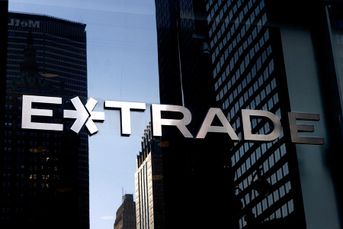Advisers can harvest a surprising amount of tax losses for clients this year
Despite the huge market run-up, there are still plenty of areas from which to harvest losses.
It’s harvest season: Time to boot the losers from your clients’ portfolios and reap the tax benefits. And surprisingly, there’s a bountiful harvest of losers to cull in this bull market year.
Financial advisers aren’t expected to be good farmers, thank goodness, but they are expected to make sure that clients don’t pay more in taxes than they have to. Traditional tax advice is to postpone taxes when you can, and that’s particularly true this year. Tax reform, with lower rates for businesses and individuals, is looking increasingly likely.
One big question is when tax reform, if passed, will be effective. “I think there’s a possibility that tax reform will be retroactive [to 2017],” said Melissa Labant, director of tax policy at the American Institute of Certified Public Accountants. Of course, it could also be retroactive just to to September 27, when Congress passed the framework for tax reform. Or it could be piecemeal, with some provisions retroactive to 2017 and others delayed until 2018.
The truth is, no one really knows what will emerge from Congress this year, and the longer Congress takes, the more likely that the Internal Revenue Service will have to start tax processing later in 2018 — a move that hurts those owed refunds the most.
Under current law, it makes great sense to sell losing investments before Dec. 31. You can use capital losses to offset capital gains. If you have more losses than gains, you can deduct $3,000 from income and carry forward the remainder into the next tax year.
And despite the rip-snorting gains in the stock market this year, there are plenty of opportunities to harvest losses. According to Standard & Poor’s Capital IQ, 137 members of the S&P 500 are showing a loss this year. Foot Locker (FL), for example, produced a bunion-sized loss of 55.4%. Chesapeake Energy (CHP) has been pumping mud all year: It’s down 42%. Even giants like ExxonMobile (XOM), down 7.78% this year, AT&T (T), down 17.1% and General Electric (GE), down 29.4%, are ripe for harvesting losses.
Mutual funds and ETFs are also fields ripe for harvest. You can find losers among diversified U.S. stock funds, such as Fairholme (FAIRX), down 10.05% this year, or FPA Capital (FPPTX), down 10.05%, according to Morningstar. PowerShares S&P SmallCap Energy ETF (PSCE) has watched its share price fall 36.23% this year; even a few muni funds, such Oppenheimer Rochester Maryland Municipal fund (ORMDX), have shown losses. (It’s down 6.57% this year).
Alternative funds are yielding a bountiful harvest of losses this year. If you were betting on a pickup in volatility, you’re sitting on a 65.54% loss from the iPath S&P 500 VIX Short-term Futures ETF (VXX). Even the AQR Managed Futures Strategy (AQMNX) fund, the largest alt fund around, is showing a 4.02% loss this year.
You’re not supposed to let taxes make your decision to buy or sell an investment. On the other hand, if you sell a losing investment now, it’s unlikely your loser will skyrocket in the 30 days you have to wait before repurchasing it. (If you don’t wait, you’ll trigger a wash sale, which will disallow the loss). If you made a bet on energy stocks this year, for example, it might be best to sell the stock, capture the loss, wait out the wash-sale holding period, and find a better entry point.
And if clients have any actively managed stock funds in a taxable account, having some losses could come in handy in this bull market year. Most funds have long since run out of losses from the 2007-2009 bear market to offset capital gains, and payouts this year could be large. T. Rowe Price Blue Chip Growth (TRBCX), for example, estimates it will pay out $1.99 per share in long-term gains this year. That’s about 2% of the fund’s share price. The American Funds AMCAP funds expects a distribution of 3% to 5% of the fund’s share price. You should avoid funds with potentially large capital gains payouts until after those funds have made their distributions.
Just what fun-loving hijinks Congress will have for investors and their advisers is unknowable, because there are so many moving parts to the tax code. Most people would like to see a repeal of the alternative minimum tax, for example – unless those people have large AMT carryforwards. What will happen to them? Will the 3.8% net investment income tax, which helps pay for the Affordable Care Act, remain in place? What will the new tax rates be?
We have no idea. At the moment, the tax code levies higher taxes on money earned by the sweat of your brow – income — than it does on capital gains and income, which you earn while you sleep. That’s unlikely to change. And the basic tenet of taking tax losses now, rather than next year, seems to hold true as well. Other than that, we’ll just have to wait and see.
Learn more about reprints and licensing for this article.








